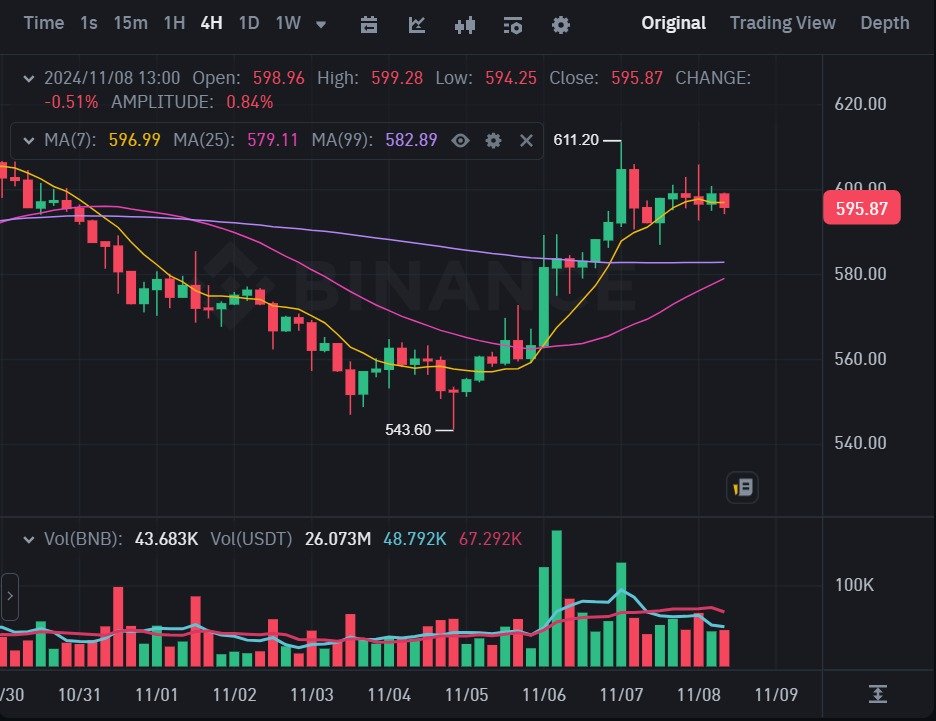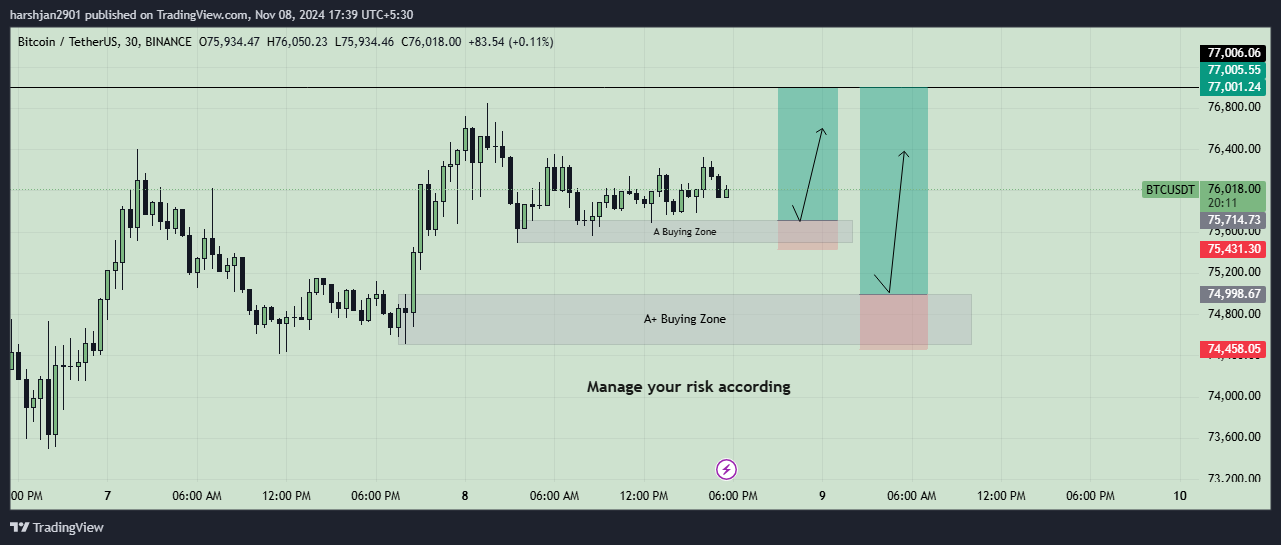As the 2024 U.S. Presidential Election draws closer, many investors are speculating about how the outcome might impact various asset classes, including cryptocurrencies. One of the most talked-about scenarios is whether the market will rise or fall depending on who wins the presidency, especially if Donald Trump returns to office.
Trump’s political and economic policies, particularly around issues like regulation, taxation, and financial markets, could have significant implications for the crypto space. In this article, we’ll explore some potential scenarios and factors that could influence the future of cryptocurrencies under a Trump administration.
1. Trump’s Historical Stance on Crypto
During his previous time in office, Donald Trump was known for his generally skeptical stance on cryptocurrencies. In 2019, Trump made headlines when he tweeted that he was “not a fan” of Bitcoin and other cryptocurrencies. He expressed concerns about their use for illegal activities and emphasized that they were not money.
However, despite his vocal skepticism, Trump’s administration did not take drastic action to regulate or ban cryptocurrencies, leaving room for the market to continue growing. Since then, the broader crypto ecosystem has evolved, with increasing institutional adoption and the emergence of significant developments in blockchain technology.
2. Factors That Could Drive Crypto’s Rise if Trump Wins
a) Pro-Business Policies and Lower Taxes
One of the most defining features of Trump’s first term was his focus on tax cuts and pro-business policies. His administration passed a tax reform bill in 2017 that lowered corporate tax rates and aimed to boost economic growth. If Trump returns to office and continues these policies, it could have a positive effect on the broader financial market, including cryptocurrencies.
- Lower taxes for businesses and high-net-worth individuals could lead to increased investment in digital assets, as investors seek tax-efficient opportunities.
- A more favorable business environment could encourage crypto-related companies, such as blockchain startups or crypto exchanges, to thrive, potentially leading to more liquidity and market growth.
b) Deregulation and Regulatory Flexibility
Another aspect of Trump’s tenure was his focus on deregulation. If he wins again, he may push for lighter regulations in sectors like technology and finance, which could include cryptocurrencies. Less regulatory pressure could encourage greater innovation in the blockchain and crypto space.
- Favorable regulations: Trump’s administration might focus on providing clearer, more supportive frameworks for cryptocurrencies, which could be a boon for the market. Some crypto-friendly policies, such as reduced compliance costs for exchanges or businesses, might make the market more attractive to new entrants.
- The lack of stringent regulations might spur crypto adoption and encourage new investment from retail and institutional investors, especially if DeFi and other blockchain-based solutions continue to gain traction.
c) Bitcoin as a Hedge Against Economic Uncertainty
Given Trump’s potential for unconventional policies, such as trade wars or increased debt, there might be economic uncertainty during his presidency. Cryptocurrencies, especially Bitcoin, are often seen as a hedge against inflation and economic instability.
If Trump’s economic policies lead to currency devaluation or heightened concerns about inflation, investors may flock to Bitcoin and other cryptocurrencies as an alternative to traditional assets like stocks or fiat currencies.
- Bitcoin’s fixed supply and decentralized nature have earned it the nickname “digital gold,” making it an attractive store of value in times of economic turmoil. This could drive significant demand for crypto assets if Trump’s policies trigger market instability or inflationary pressures.
d) Support for Innovation and Technology
Trump’s administration showed interest in supporting technology and innovation, particularly in sectors like artificial intelligence, 5G, and blockchain. If he continues to back emerging technologies, blockchain and crypto could benefit from increased funding, research, and development.
A pro-tech stance could lead to more partnerships between traditional financial institutions and crypto companies, enhancing the legitimacy of digital assets. Additionally, the growth of blockchain-based innovations like DeFi (Decentralized Finance) and NFTs could drive the adoption of cryptocurrencies as an investment asset class.
3. Challenges and Risks for Crypto Under a Trump Presidency
While there are several factors that could lead to a rise in crypto if Trump wins, there are also risks to consider:
a) Potential for Crackdowns on Illegal Crypto Activities
Despite Trump’s lack of overt action against cryptocurrencies during his previous presidency, he did emphasize concerns about illegal activities involving digital assets, such as money laundering and fraud. Under a second term, Trump might push for more aggressive enforcement actions against crypto-related crime.
- If Trump’s administration institutes tougher anti-money laundering (AML) and know-your-customer (KYC) regulations, it could create friction in the market, especially for anonymous transactions or decentralized exchanges.
- Increased scrutiny on cryptocurrency markets might lead to security breaches, hacks, or heightened surveillance, potentially causing loss of trust among users.
b) Trump’s Approach to CBDCs (Central Bank Digital Currencies)
While Trump has not been vocal about Central Bank Digital Currencies (CBDCs), they are gaining traction worldwide, with several central banks exploring their development. Trump’s administration could either accelerate or oppose the rollout of CBDCs, depending on its stance toward centralized digital currencies.
- If the U.S. Federal Reserve moves forward with a digital dollar, it could create competition for decentralized cryptocurrencies, as CBDCs would be issued and controlled by the government. The potential rise of CBDCs might limit the growth of decentralized cryptocurrencies like Bitcoin and Ethereum, as people may prefer the stability and trust that come with government-backed digital currencies.
c) Political and Social Uncertainty
Trump’s presidency has been marked by political polarization and social unrest, which can sometimes lead to market instability. While crypto markets are not directly tied to political events, broader political uncertainty can lead to volatile market movements.
- If Trump’s presidency triggers political unrest, it might influence crypto markets either positively (as investors seek refuge in crypto assets) or negatively (if the market faces uncertainty or policy changes that hurt innovation or growth).
4. Conclusion: Will Crypto Rise if Trump Wins?
The possibility of crypto rising under a Trump presidency is certainly plausible, especially given his pro-business stance, potential for regulatory flexibility, and the increasing use of Bitcoin and other cryptocurrencies as a hedge against economic instability. However, the market will still face challenges such as regulatory pressures, the potential rise of CBDCs, and concerns about illegal crypto activities.
Investors should be prepared for volatility and uncertainty, as political outcomes, both in the U.S. and globally, can significantly impact the direction of the market. While the future remains uncertain, Trump’s presidency could present both opportunities and risks for the crypto space.
At Lumina Lore, we offer expert guidance to help you navigate the dynamic world of crypto investments and create tailored strategies that align with your financial goals. Contact us today for professional insights and solutions.
Key Takeaways:
- Pro-business policies, deregulation, and economic instability under a Trump presidency could contribute to a rise in crypto investments.
- Bitcoin and other cryptocurrencies might gain traction as stores of value and hedges against inflation.
- Regulatory challenges, increased scrutiny, and competition from CBDCs may limit the growth of digital assets.
- Stay informed and consult experts to craft a strategy tailored to the changing political and financial landscape.



